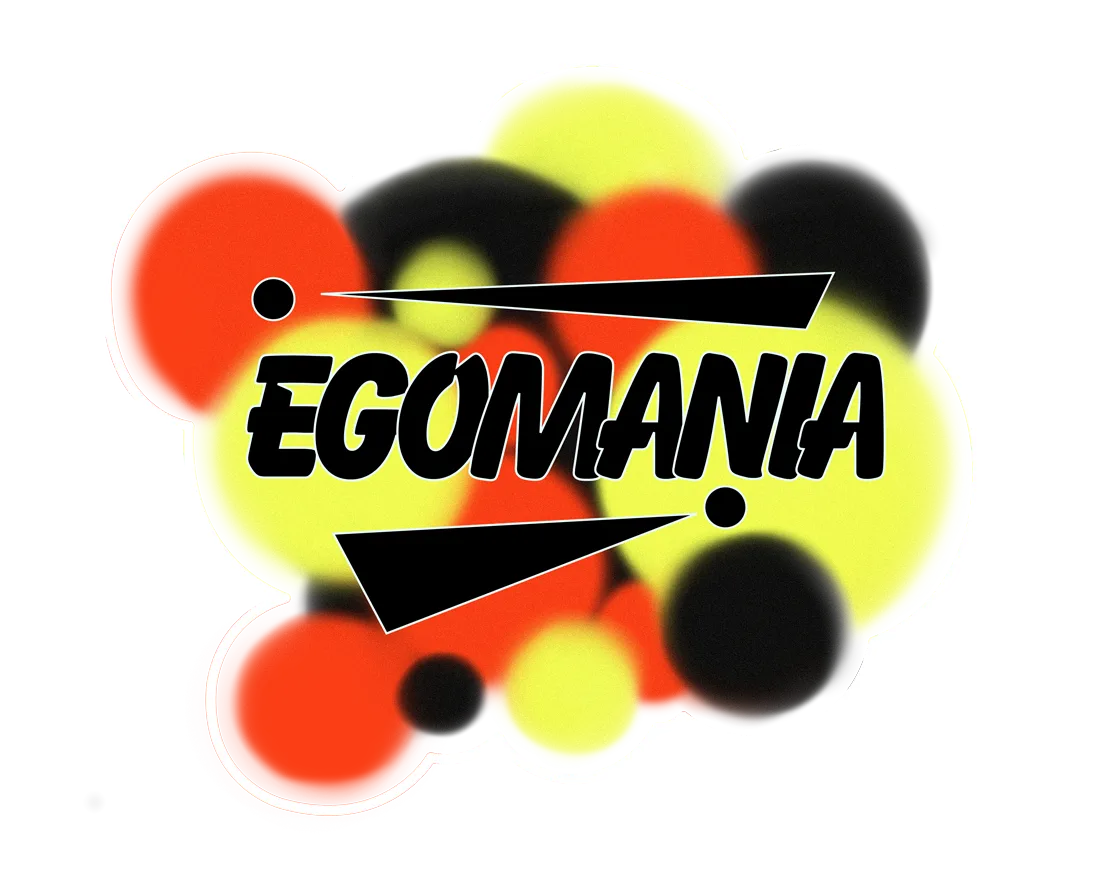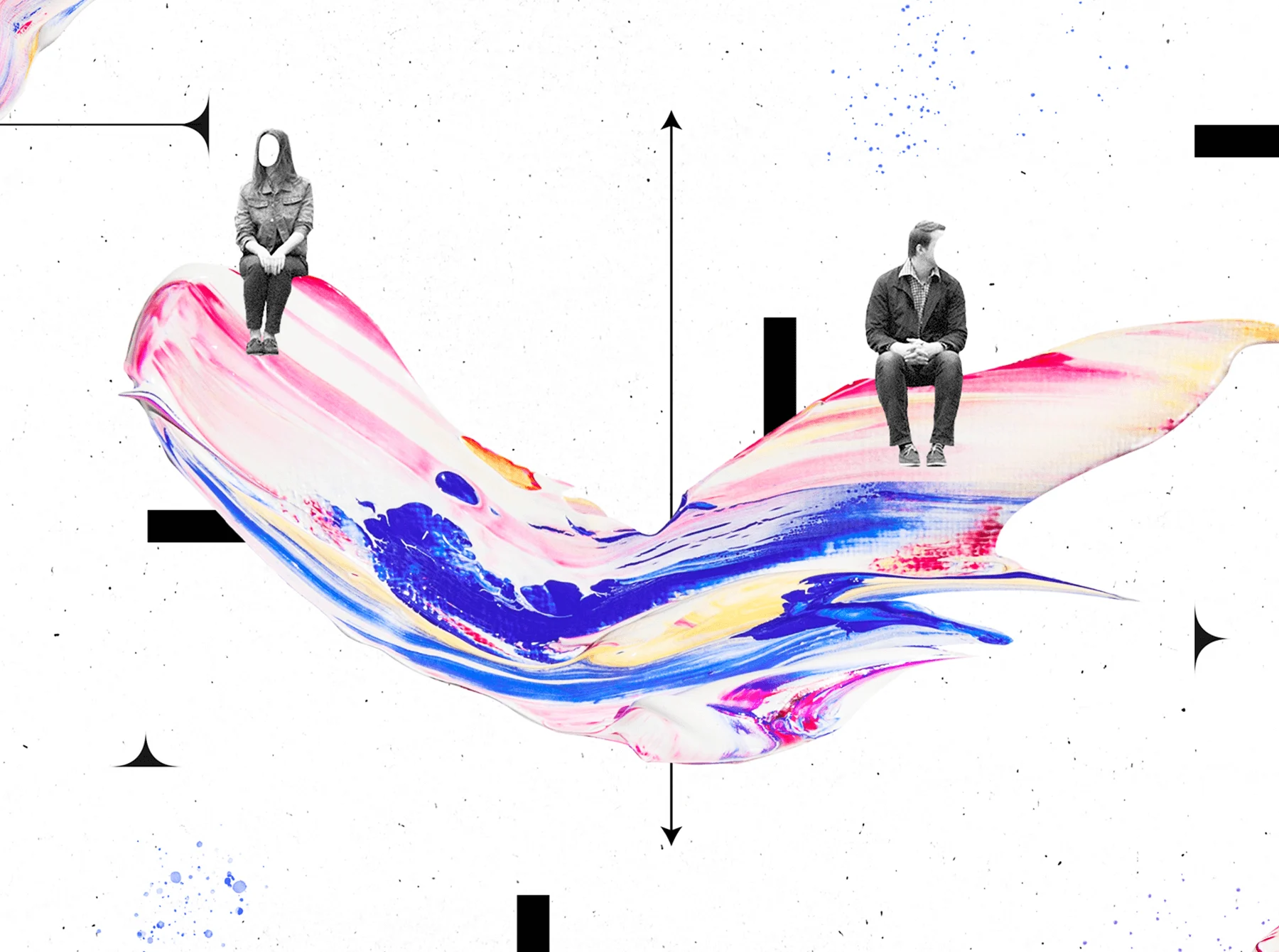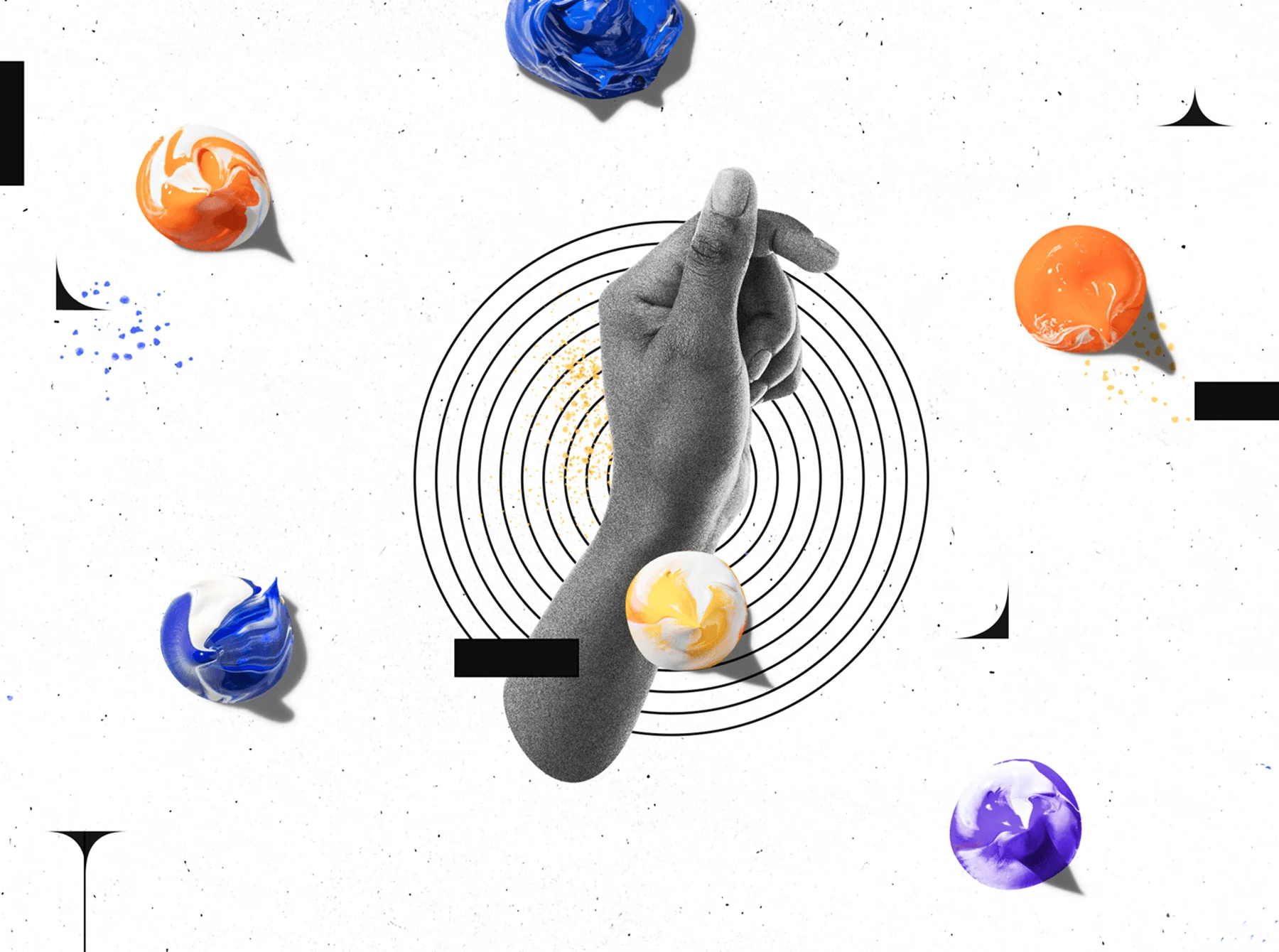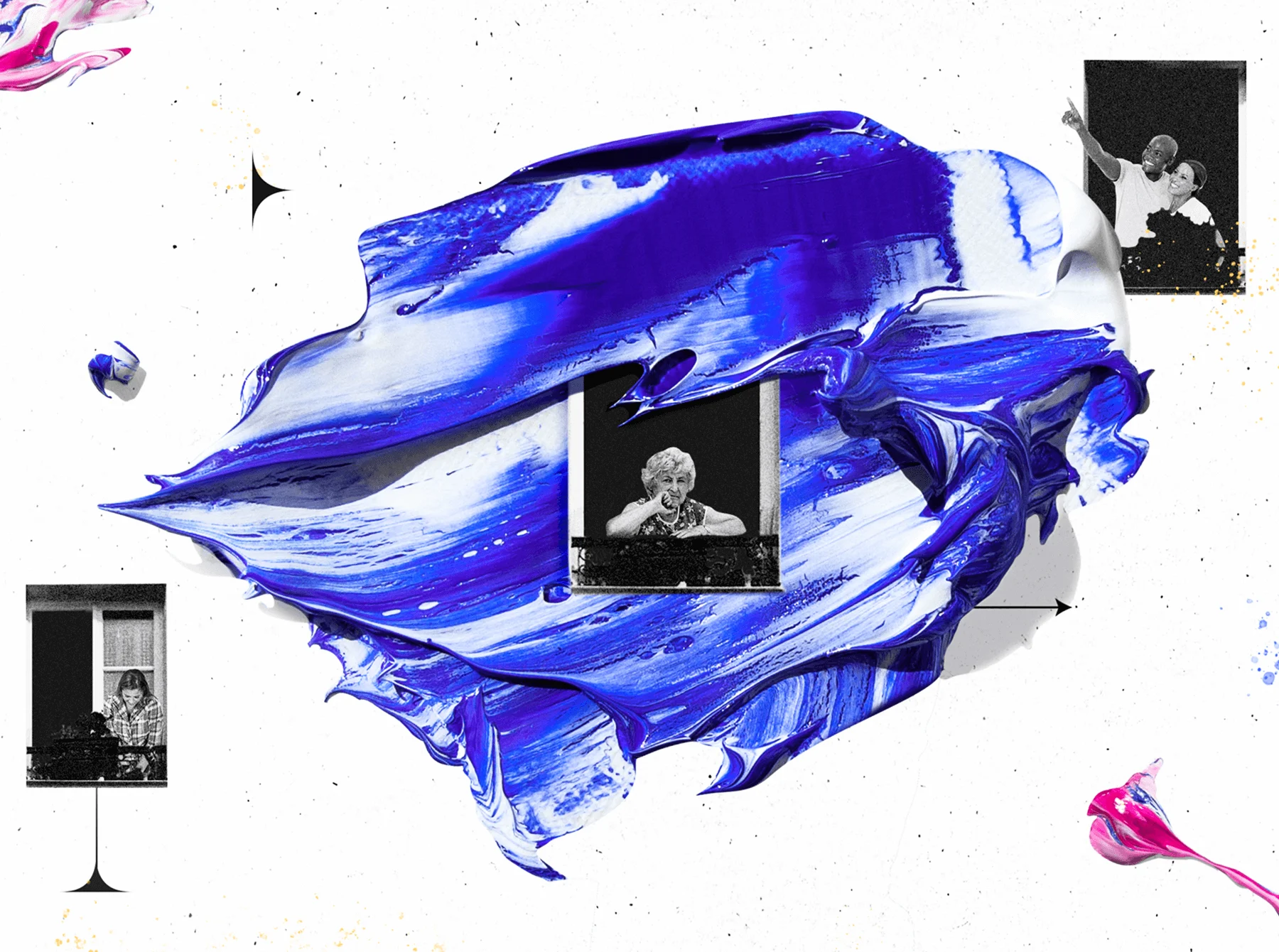

The findings of this year’s Ideas Report revealed that only 81 percent of the clients and 90 percent of the creatives surveyed believed that the other party plays an important role in creative work. Writer and editor James Cartwright wonders what made the others think differently.
Designs by Raissa Pardini.
See the full Ideas Report and find out what the future of creative work looks like at WeTransfer Ideas Report 2021.
Whenever I pick up a new book to read, I tend to flick to the last few pages, all the way past the point where the story ends and just before the author’s biography. It’s here you find the space dedicated to the authorial spillings of guts and expressions of gratitude for the numerous people who helped bring this particular work of fiction into existence. “I couldn’t have done this without...”. “Invaluable support was provided by…”. I love to see it.
For me, it’s a way of coping with career anxiety. I find comfort in watching an imaginative mind humble itself, before I dive into the world it has conjured as if from thin air. It stops me from beating myself up about any shortcomings I feel as someone who’s supposed to be “creative”. Not because I’m sad that I have yet to write a novel, but because I so often forget that creativity isn’t a singular, individualistic pursuit, despite what plenty of novelists would have us believe. Creativity is a process of repetitive iteration and collaboration. It’s not about big egos.
Some of the people I worked with were more inclined to treat me like a faceless service provider.
In the back of Circe, a feminist reimagining of the much-maligned witch of Greek mythology, its author, Madeline Miller, says that “so many people were supportive of the book’s journey that I cannot possibly list them all, and must settle instead for a heartfelt thank you”, before dedicating two pages to the people who do deserve a named mention.
Family, friends, colleagues, editors, research assistants, publishers and press officers all get a nod, along with academics with niche specialisms who provided guidance on historical inaccuracies in the manuscript’s first draft. Miller spent 10 years quietly moonlighting her first novel while she worked as a classics teacher, but even she needed a small army to get her second over the line. And that’s normal.

So I guess I’m surprised to find that this year’s Ideas Report reveals that only 81 percent of the clients and 90 percent of the creatives surveyed believe that the other party plays an important role in creative work. I have no idea how the remaining 10 percent and 19 percent think this stuff happens. Creatives, if the client doesn’t come to you with their problems, how can creativity solve them? Clients, if the creative doesn’t produce imaginative solutions, then aren’t you just left sitting there with some notes on a page? If a novelist needs two pages to thank all the people that brought her creative vision to life, then you folks need all the help you can get from each other.
But I’m mostly preaching to the converted. The vast majority know that collaboration is implicit in producing exciting creative work. What’s really concerning is how many of you feel that self-centered behavior gets in the way. Clients and creatives both cite egomania as one of the most common barriers to fruitful creative relationships, and list honesty and respectfulness in their top three desirable qualities in a creative partner.
After the last two years, it doesn’t surprise me that respect and honesty are foremost in our minds. Before COVID-19 there was at least some division between our professional and personal lives, and that divide has been irreversibly blurred.

For those of us in the creative industries who were previously office-based, COVID-19 has meant working from home, inviting the people we work with into makeshift offices that were once just our bedrooms, living rooms or kitchens. We’ve moved seamlessly from eating breakfast with our families into a planning meeting with 20 people. We’ve talked deadlines and strategy with clients in the same spaces where we eat, sleep and have sex.
At times this has been extremely weird and uncomfortable, at others it’s provided fertile ground for striking up deeper conversations with people we’d usually keep at arm’s length. In May I had a very involved discussion about parental relationships because a Scandinavian client saw a print my mother gave me years ago hung on my kitchen wall. And I didn’t hate it. It was surprisingly cathartic to discuss family drama before we got into the minutiae of editing web copy.
This isn’t just an isolated incident. The realities of juggling work and family life during a global pandemic have forced me to be much more honest with clients and collaborators than I ever was before. When pre-school has been closed and my kid has run screaming into a meeting, the illusion of “professionalism” has shattered immediately and I’ve been left feeling very exposed. My initial instinct would be to run from that feeling, but it’s actually encouraged me to acknowledge my own limitations to my clients: I have days where I can’t function because it feels like the world is falling apart; I have days where I can’t function because I have a kid to raise.
I can’t imagine this having happened just a couple of years ago, when egotistical behavior from clients and collaborators was much more prevalent, and some of the people I worked with were more inclined to treat me like a faceless service provider.

Over the years, clients have delivered feedback to me in breathtakingly thoughtless ways (late Sunday-night phone calls were a favorite habit of one) because their seniority at the company allowed it. Others have cancelled meetings mere minutes before they were due to start because “something more important came up.” And this was back in the days when meetings happened IRL. Once you’ve been kicked in the teeth by someone early on in a working relationship, it’s very hard to establish a positive atmosphere for collaboration.
I’m not suggesting we all talk about our parents to our clients, or that we remove the boundaries completely and do meetings while we eat breakfast with our kids. But we’d all benefit from maintaining some of the trust and dialog that’s built up over this uniquely strange period of our lives.
Maybe I’m just being selfish because I don’t want to go back to the old world of obnoxious Sunday-night feedback calls, but I propose we take a leaf out of Madeline Miller’s book, ditch our egos and thank everyone who has helped us to make work that we’re proud of, whichever side of the client/creative divide we’re on. “I couldn’t have done this without...”. “Invaluable support was provided by…”. Give it a try.
I’ll go first: For helping bring this article into existence, my thanks go out to Holly Fraser, for the initial commission and invaluable feedback on the first draft; Liv Siddall, for her extraordinary editing skills and reminder to shoehorn her name in here; my partner Charlotte, for bringing me lunch when I was being useless trying to get this thing written; and all of the WeTransfer marketing team, who’ve made this article look beautiful and so much better than my initial scrawl of jumbled thoughts on a page. Couldn’t have done it without you all.








